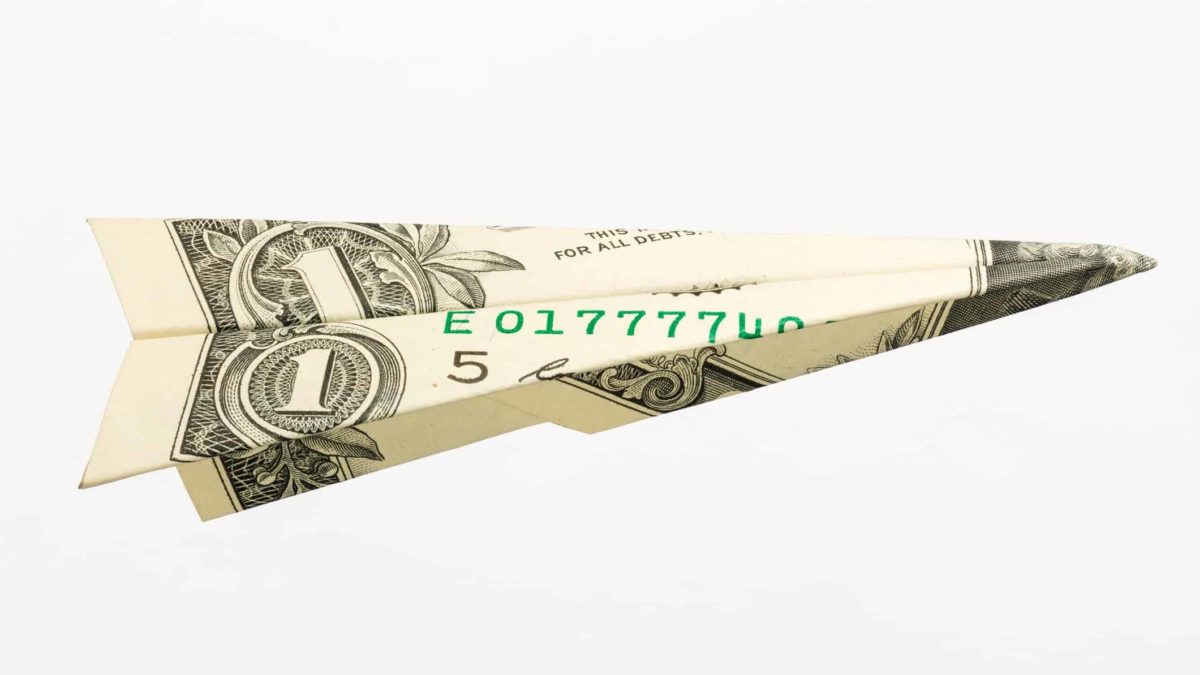Can you remember the last time your bank delivered an unexpected windfall on your cash savings?
Me neither.
Unfortunately, the paltry returns Australians receive from their savings deposits have only been heading one way — lower.
According to data from RateCity, 64% of Aussie banks have slashed one or more of their savings rates over the past two months. This comes as the Reserve Bank of Australia (RBA) has kept its official cash rate unchanged at 0.25% since March.
National Australia Bank Ltd. (ASX: NAB) was the latest of the big four banks to cut rates. NAB lopped 0.10% off its introductory rate on 30 July, bringing it down to 0.95%. With its ongoing rate already at a rock bottom 0.05%, the bank left that one unchanged.
Whatever benefits NAB hopes to achieve for its shareholders with the move have yet to be reflected in the NAB share price. NAB's share price is down 6.4% since its 30 July savings rate cut. Year to date, the NAB share price is down 31%.
Commonwealth Bank of Australia (ASX: CBA) also cut savings rates late last month. It knocked 0.05% off its GoalSaver for anyone with a balance of more than $50,000. Pity for those customers whose goal is to save more than that. The Commonwealth Bank share price is down 9.7% year to date.
Good news and bad for your cash holdings
The good news for Aussies with large cash holdings is that the cost of living is actually getting cheaper. Driven by falling fuel prices and free child care in the wake of the COVID-19 pandemic, the consumer price index (CPI) is down 0.3% over the last year.
The bad news is that the returns you're getting from your bank deposits are likely to get even smaller.
As RateCity's research director, Sally Tindall, says:
"Banks are feeling the heat at the other end of the equation where there is immense pressure to put competitive home loan rates on the table. There's little competition between the banks for deposits right now. As a result, banks can chip away at these rates, often without too much blowback".
Now a 0.10% cut in the savings rate won't make or break most Australians' retirement plans. If you have $50,000 in cash savings, it will mean $50 less in your pocket at the end of the year, minus what the ATO may claim.
But if you had, say $205 billion, even a 0.10% cut would knock $205 million off your annual savings. Ouch!
But then who has $205 billion in cash holdings?
Two new records from Warren Buffett's Berkshire Hathaway
Legendary investor Warren Buffett has $205 billion, of course.
At the end of the June quarter, Buffett's Berkshire Hathaway (NYSE: BRK-A) (NYSE: BRK-B) held a record US$146.6 billion (AU$205 billion) on hand.
But that doesn't mean Buffett has been sitting idly on the sidelines.
From Bloomberg:
Berkshire spent a record $5.1 billion buying back its own stock in the second quarter, and may have kept that higher pace going in July…
Edward Jones analyst Jim Shanahan estimated that Berkshire repurchased about $2.4 billion more of its stock in July…
Buffett said in early May that he was keeping cash high to be prepared for any direction the pandemic might turn and wasn't overly attracted to buybacks. But as he searched for undervalued assets to spend billions on, he gravitated to his own firm's shares.
Despite the record buybacks, Berkshire's cash pile increased to the new record high as the company sold US$13 billion more shares than it bought. That's its biggest net share sales in more than ten years.
Buffett has been particularly pessimistic about the share price outlook for airlines. Since May, Berkshire sold all of its shares in the four biggest United States airline companies.
Not to second guess the Oracle of Omaha, but…
I'd hate to pit my investing acumen against Warren Buffett when it comes to investing in Qantas Airways Limited (ASX: QAN) shares. So, I'll let the analysts from UBS and JPMorgan do it for me.
As noted by the Australian Financial Review (AFR), Qantas will likely report an 80% drop in earnings and profits in its upcoming 20 August report on the full financial year (according to Bloomberg estimates).
Despite that massive profit plunge, only one of the eight analysts surveyed by Bloomberg had a sell rating on Qantas shares. Two analysts remained neutral with five reporting a buy rating on Qantas shares. The consensus target price was $4.36. That's 31% higher than Qantas' current share price of $3.34.
According to the AFR, JPMorgan analyst, Richard Jones, stated Qantas is in a relatively good position despite the current challenges:
"We see [Qantas] as well-positioned given: 1) [about] 70 per cent of earnings over the past 10 years and we estimate 80 per cent over the next five comes from domestic and loyalty. And, 2), its strong relative balance sheet positioning…"
"Loyalty is a high-quality business, having delivered stable growing earnings. It is comfortably the least disrupted division from the crisis, despite an expected pullback in FY20 earnings of [about] 5-10 per cent … Loyalty is worth [more than] $4bn".
UBS analyst, Matt Ryan, is also bullish on the Qantas share price, telling his clients in a note last week they shouldn't be concerned with the revival of Virgin 2.0.
From the AFR:
"Virgin is intending to offer customers a broad offering (including regional routes, lounges and loyalty, corporate and leisure etc) albeit on a reduced scale. Without more significant changes, we believe this is positive for Qantas. As this represents a similar service offering that we saw from Virgin over the past five years where Qantas was able to take [about] 90 per cent of the domestic profit pool".
Ryan rates the Qantas share price as a buy, with a target price of $4.60. That's 37% above the Qantas share price in early morning trading today.









